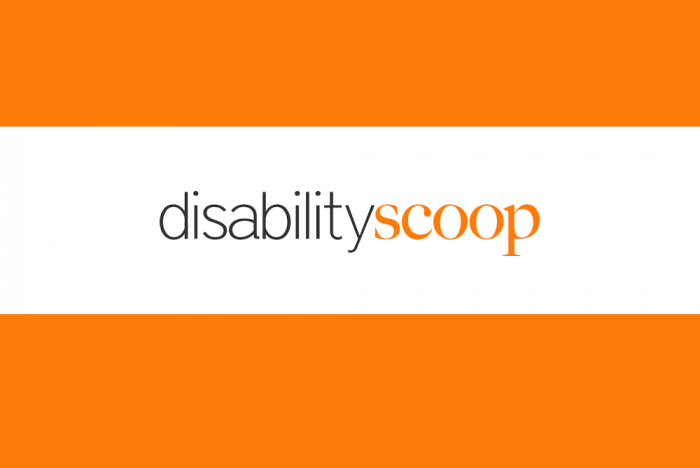ISAC Meeting Updates and Materials From Dec. 12 Meeting Now Available
OCDEL Rate Methodology Cost & Personnel Workbooks Final Submission Deadline is January 16, 2024

With the completion of the training for the Cost Report and Personnel Roster documents, it is time to begin completing both, as the deadline is set for January 16, 2024. Completed documents should be uploaded using the PA EI Rate Study website’s “Submit Data” tab.
The following resources are available on the PA EI Rate Study website:
- Cost Report and Personnel Roster Workbooks;
- Cost Report and Personnel Roster Instructions;
- Cost Report and Personnel Roster FAQ; and
- Cost Report and Personnel Roster Recorded Training.
Questions about next steps? Attend a Cost Report and Personnel Roster Office Hour. Available time slots are listed below:
- Wednesday, December 20, 2023, from 12:30 pm – 1:30 pm EST
- Thursday, January 4, 2024, 10:00 am – 11:00 am EST
- Thursday, January 11, 2024, 11:30 am – 12:30 pm EST
If you have any questions, please send them electronically or contact RCPA Policy Director Jim Sharp.
ODP Releases Training Calendar for January 2024
IPRC Webinar: Therapeutic Strategies to Support Autistic Individuals in Medical Settings
Thursday, February 8, 2024
1:00 pm – 2:00 pm EST, 12:00 pm – 1:00 pm CST, 11:00 am – 12:00 pm MST, 10:00 am – 11:00 am PST
Please join us as the IPRC hosts special guests from the Center for Autism and Related Disorders at Kennedy Krieger Institute in Baltimore, Maryland. They will discuss practical strategies rehabilitation clinicians can employ to optimize care for Autistic individuals in medical settings.
Meghan Keenan, MOT, OTR/L
Meghan Keenan is a Senior Occupational Therapist and an Occupational Therapy Site Manager for the Greenspring Campus at Kennedy Krieger Institute in Baltimore, MD. She graduated with a Masters of Occupational Therapy from Temple University in 2004 and is currently working on her post profession doctorate at the University of Montana. While she has worked in a variety of pediatric settings, for the past 14 years, she has specialized in providing care for Autistic children at Kennedy Krieger Institute through the Center for Autism and Related Disorders. Meghan is passionate about caregiver training for the families she works with and eliminating barriers to care, so patients and their families can successfully engage in meaningful occupations.
Jessica Pontius, MS, CCC-SLP
Jessica Pontius is a Speech-Language Pathologist who specializes in diagnostics and treatment of Autism, particularly in toddlerhood through adolescence. She graduated with her Master of Sciences in Speech-Language Pathology from Towson University in 2021. Jessica’s primary areas of interest are in early childhood diagnostics and adolescent executive functioning and literacy. She currently works in the Center for Autism and Related Disorders at Kennedy Krieger Institute in Baltimore, MD.
Objectives: At the end of this session, the learner will:
- Implement strategies to support communication needs of Autistic individuals;
- Provide communicative support to Autistic patients to promote patient-centered care;
- Implement interaction strategies when caring for Autistic individuals;
- Implement environmental accommodations to support sensory and motor needs of Autistic individuals;
- Provide support to family for self-care needs during a hospital or clinic stay; and
- Identify the need for a safety plan.
Audience: This webinar is intended for all members of the rehabilitation team including medical staff, nurses, physical therapists, occupational therapists, speech language pathologists, licensed psychologists, mental health professionals, and other interested professionals.
Level: Intermediate
Certificate of Attendance: Certificates of attendance are available for all attendees. No CEs are provided for this course.
Register
DHS Highlights Research and Resources Aimed at Preventing Suicide
ODP Releases Provider Qualification Process Update
The Office of Developmental Programs (ODP) has shared ODPANN 23-101: Provider Qualification Process UPDATE. The purpose of this update is to notify stakeholders that the links for DP1059 and the Provider Qualification Record have changed. Please review the announcement for information and details.
FEMA Releases Updated Training Course on Including People With Disabilities in Disaster Operations
The Federal Emergency Management Agency (FEMA) Office of Disability Integration and Coordination (ODIC) has released a new version of its training course titled “IS-368.A: Including People with Disabilities in Disaster Operations.”
The course is designed for all personnel involved in disaster operations. It provides an introductory overview of information and strategies on how to include people with disabilities during mitigation, preparedness, response, and recovery efforts.
The course focuses on:
- The difference between disabilities and access and functional needs;
- FEMA’s actions supporting the integration of people with disabilities in disaster operations and ways to shorten the disaster cycle for them;
- The differences between equity and equality;
- Ways to ensure terminology is in alignment with the needs of people with disabilities;
- Messaging to ensure inclusivity and accessibility to all emergency managers; and
- Guidance to FEMA staff on how to ensure physical, program, and communication access to the whole community.
The course is live now and can be accessed on FEMA’s official website. The self-paced course should take two hours to complete.
Registration for January–April CI Initial Certification Course Now Open
The Office of Developmental Programs (ODP) has shared ODPANN 23-102: Now Open: Registration for Certified Investigator (CI) Initial Certification Course. The Initial CI Certification Course was created to ensure that all incidents requiring an investigation receive a systematic review that meets established standards. To perform investigations, the CI candidate must successfully complete all requirements of the CI Initial Certification Course. The CI Initial Certification process, as well as steps for registering for the CI Initial Certification course, are described in ODPANN 23-102. Please review the announcement for information and details.

















